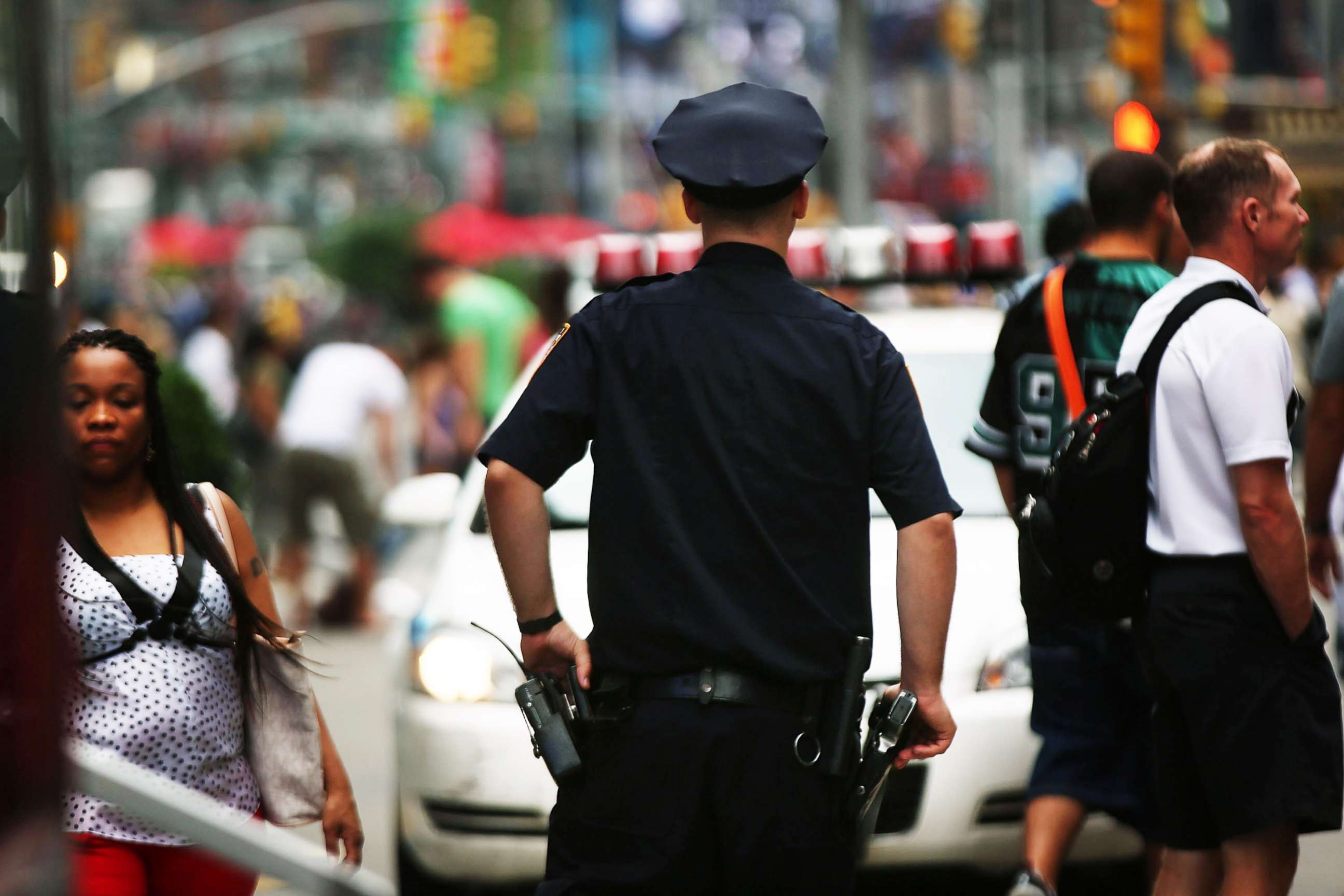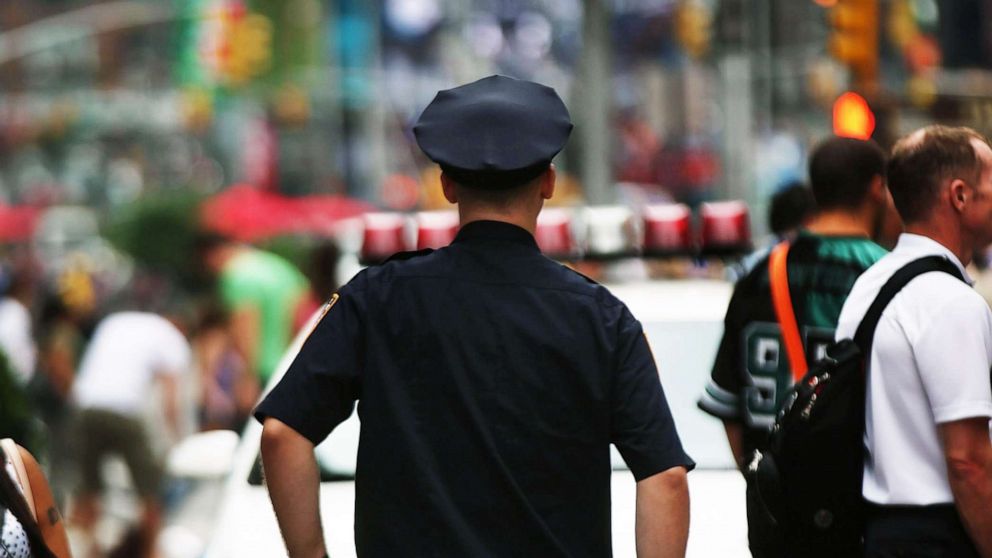How sending mental health responders instead of police could save Black lives
New York City Mayor Mayor Bill de Blasio and first lady Chirlane McCray announced a pilot project this week that experts say could save lives by using mental health professionals instead of police in response to 911 calls that may be mental health emergencies.
The program, modeled after the CAHOOTS program in Oregon, comes after months of historic protests calling for an end to police brutality, particularly in the context of Black lives lost at the hands of police.
"Of the more than 170,000 mental health calls to 911 last year, an estimated one call every three minutes, the majority of concerns were people who just needed help -- no indication of violence at all," said McCray.
"Making health-only teams the default response will reduce the number of times police respond and ensure that people get the physical and mental health care they need quickly," McCray said.
Although people often call 911 during mental health emergencies, police officers are less capable of managing a mental health crisis than a trained medical professional.
Last month, Philadelphia police were called to the scene of a 27-year-old Black man, Walter Wallace Jr. Wallace was experiencing a violent psychological episode, and holding a knife. He was fatally shot by police, prompting days of protests in the city.
"One-quarter of fatal police shootings involve people with mental illness. Half of those deaths occur in people's homes," said Dr. Matthew Goldman, medical director for Comprehensive Crisis Services at the San Francisco Department of Public Health.

"There's clearly a need for a mental health specialty response, as evidenced by the killing of Walter Wallace," Goldman said.
People with behavioral health needs are 16 times more likely to be killed by police than the general population, Dr. Jack Rozel, president of the American Association for Emergency Psychiatry, said
"If I have a heart attack or a diabetic emergency and my wife calls 911, the odds are overwhelmingly likely that I will end up on my way to the emergency department. If I am suicidal and I call 911 for help, there's a good chance the police will respond," said Rozel. "There's a lot of ways it can go wrong."
Psychiatrists agree that asking police to respond to acute mental health crises is not appropriate for several reasons.
"Police are not clinicians," said Dr. Stephanie LeMelle, director of Public Psychiatry Education at Columbia University. "Asking them to make a clinical assessment or to intervene with a person who is experiencing emotional distress is not reasonable. In fact, it can be detrimental to both the individual in need of help and potentially to the police themselves."
According to a Washington Post analysis, Black people are 2.5 times more likely to be shot and killed by the police than their white counterparts. And according to The Counted Project, in 2016, Black men ages 15 to 34 were nine times more likely than other Americans to be killed by law enforcement officers. For a Black person with a mental health issue, the risk could be even higher.
"Having mobile crisis teams, staffed with crisis-trained behavioral health clinicians, who are culturally aware of systemic bias and racism, who can respond quickly, assess, deescalate, treat and assist in transporting a person to the correct level of care, instead of involving the police, could save lives," said LeMelle.
"By removing the armed personnel from the mental health crises, including those of Black individuals, the risk itself would decrease," Goldman said. "Even if a mental health clinician were to have bias, the absence of a potential lethal force and the presence of clinical expertise and linkage to appropriate care is much more likely to result in positive outcomes. This is what anti-racist policy means."
Over the last decade, initiatives aimed at using mental health professionals in lieu of the police to respond to mental health crises have spread to all corners of the nation, including programs in Arizona, California, Tennessee, New Mexico and Pennsylvania.
Experts are hopeful that mental health over police response will put those who are in need of help at less risk of getting hurt.
The New York City pilot program is intended to maximize on existing resources, and police would be dispatched as back up in cases involving a weapon or threat of violence.
"We have been working for many years, in partnership with advocates, experts and city agencies, to strengthen mental health crisis prevention and response," said Susan Herman, director of the mayor's office of ThriveNYC.
The city will train specific mental health professionals to become part of EMS teams normally dispatched through 911, which will be a separate program from the mobile crisis teams in New York City, which answer to NYC Well, the city's free mental health helpline.
"Under this pilot, social workers will be added to the EMS teams," Herman said.
Other cities have run these programs differently. Some use 911 while others use a different number. Some respond to every crisis in person, while others resolve most through the phone.
The FCC approved a plan to launch 988 as the new three-digit number for the National Suicide Hotline starting in 2020, intended to serve as "911 for the brain." Experts hope that programs like New York City's new pilot will help with the incorporation of 988 into communities.
Various programs also involve police at some levels.
"The partnerships are important, and it is unrealistic to suggest that police be always 100% removed from these situations," said Goldman.
Goldman offers some solutions in dealing with emergency mental health crises as guided by the Substance Abuse and Mental Health Services Administration for success in these programs. For example, he recommends not always dispatching an in-person mobile crisis team, as most issues can be resolved over the phone. Goldman also recommends having a clear plan of where to send people who are seen in person, whether that be a hospital or specialized unit. He also emphasizes that the responders are well-trained.
"If you don't have those ingredients, you have a mobile team responding to everything [when it may not be necessary] that may not have anywhere to take someone for help," Goldman said.
Others say there's no room for the police in mental health crisis response. Matt Kudish, executive director of the National Alliance on Mental Illness of New York City, told CNN he would like to see a program in New York City that does not involve police at all.
"There are a lot of questions to be asked about the way New York is doing this -- but it's critical that they are moving towards crisis services aimed at diversion from criminal justice and emergency departments whenever possible," Goldman said.
Dr. Divya K Chhabra is a writer and psychiatrist in New York City.




